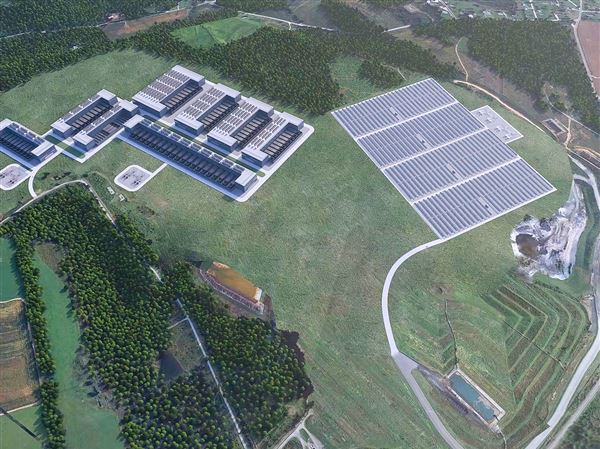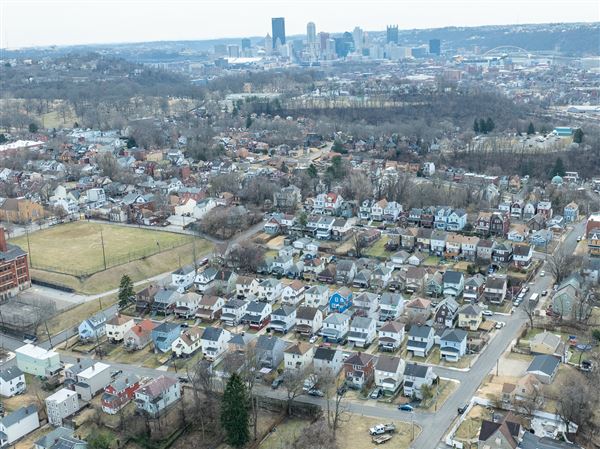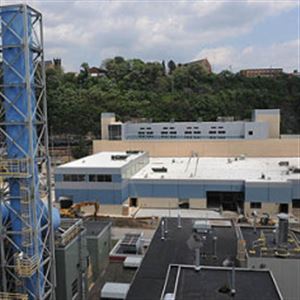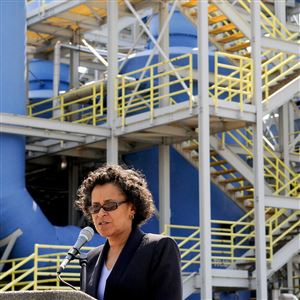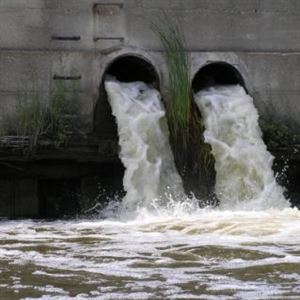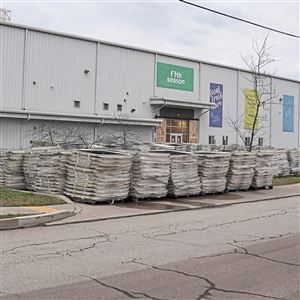County Executive Rich Fitzgerald said both the state and federal environmental agencies are looking favorably on requests by municipalities for more time to prepare plans to fix the region’s overflowing sewer system — but an extension of the 2026 deadline for completing the work isn’t likely.
Mr. Fitzgerald and Pittsburgh Mayor Bill Peduto, along with about 40 municipal customers of the Allegheny County Sanitary Authority, have sent letters to the state Department of Environmental Protection asking for an 18-month extension of the 2003 consent order that expires Monday.
The consent order requires Alcosan’s 82 municipal members and the city of Pittsburgh to repair their sewage systems while devising plans to reduce wet weather discharges of untreated sewage from approximately 200 municipal outfall pipes into the region’s rivers and creeks by at least 85 percent.
The vast majority of municipalities have met the terms of the order, but its extension would allow the municipalities time to transfer ownership of many sewer “trunk” collector lines to Alcosan and incorporate relatively new “green” infrastructure, like wetlands, green roofs, permeable pavement and bioswales — depressions that capture storm water — into stormwater flow reduction plans.
“We’ve had good conversations with the DEP and the EPA and are continuing to talk with both,” Mr Fitzgerald said. “They seem to be very favorably disposed to consider what we want to do.”
Julie Lalo, a DEP spokeswoman, released a similar statement yesterday saying the department is “supportive of what Mayor Peduto and county Executive Fitzgerald want to do, and are working out the details in conversation with the EPA.”
Alcosan still faces a 2026 deadline for stopping wet weather discharges from 53 sanitary sewer overflows and significantly reducing the sewage overflows from 153 combined sewer outfalls into the rivers. Mr. Fitzgerald said he didn’t know if the planning extensions requested by the municipalities would delay that deadline, but that is not his intent.
“It remains to be seen how quickly the work can get done and how effective it will be,” he said. “There are so many moving parts. The region is continuing to develop and the population is growing. If possible and realistic I’d like to get it all done in a timely manner. ... We just want it to be as green and efficient and effective as can be.”
David Sternberg, an EPA spokesman in the agency’s Philadelphia regional office, said it had no comment on the municipalities’ requests for extensions, but added that talks about modifications to the consent order’s schedule for required sewer system repairs with Alcosan and its municipal customers have been going on for more than a year.
“An approach that would modify the scope, cost and schedule has been discussed with the customer municipalities in addition to Alcosan and the DEP,” the EPA said in a statement released by Mr. Sternberg. “I would characterize those discussions as having made progress, but they have not yet concluded.”
He said the EPA, as a matter of general policy, encourages the use of green infrastructure to manage wet weather problems and has found that they can be “a cost effective solution to controlling storm water while providing numerous economic and health benefits.”
The storm-triggered discharges contaminate the area’s rivers with bacteria, pathogens and other harmful pollutants that degrade water quality, kill aquatic life and threaten public health.
The consent order covering municipal duties to fix sewer system overflows is separate from but related to the 2007 consent order requiring Alcosan to eliminate almost all of the 9 billion gallons of untreated sewage discharged into area waterways each year. A year ago, Alcosan submitted a $2 billion sewer system improvement plan to the EPA, but the federal agency judged it deficient because it proposed to capture and treat only 79 percent of the system’s wet weather overflows.
The sewage authority has been negotiating with the EPA on a revised plan.
John Schombert, executive director for 3 Rivers Wet Weather, a nonprofit promoting a regional response to the federal sewer system improvement mandate, said the extension of the municipal consent order would likely add provisions to move the planning process forward. And Tom Hoffman, a Sierra Club conservation coordinator working on the Clean Rivers Campaign, said municipal calls for a regional, systemwide study of the effectiveness and cost of green water runoff reduction projects is “an exciting and welcome step.”
Timothy Rogers, township manager in Shaler, one of the municipalities that also sent the EPA letters requesting a consent order extension, said the extra time would give his township more time to upgrade its sewer system, work out the transfer of trunk sewer lines to Alcosan, and “explore options to use green solutions.”
“It also gives us an opportunity to look at storm water management on a regional basis and get the biggest bang for the bucks we spend,” said Mr. Rogers. “Because of the cost, we’ve got to think more regionally.”
First Published: March 26, 2015, 4:00 a.m.
